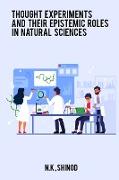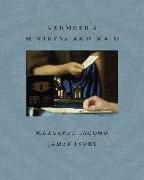Thought Experiments and Their Epistemic Roles in Natural Sciences
BücherAngebote / Angebote:
INTRODUCTION 'Eureka' and the streaking Archimedes seem to be the most popular expression and image associated with scientific results. According to the legends, the idea of Archimedes principle struck the natural philosopher while he was in a bathtub1 . Tales may be mere conglomeration of the pixels of imagination. But the above tale of Archimedes offers two morals to a philosopher of science. One is the mindfulness required in problem solving. Second, and the seemingly more important one, is that one has to really get some new experience through some experiment to get knowledge about the external world. Archimedes solved his problem not with mere thoughts. He was helped by his experience in the bathtub. We could say that Archimedes unintentionally performed an experiment and the bathtub was his instrument in the laboratory called bathroom! This suggests that one has to channel her thoughts through an experience (at least through a bathtub!) to arrive at knowledge about the external world. Though the story of Archimedes was well-known, for a long period, philosophers of science, following the logical positivist ideals of science, were not mindful of experiments. Science was perceived as travel from theory to theory, occasionally through experiments2 . In the light of the above overstatement, progress in science was considered as the progress of theories. The post- positivist philosophy of science of 1980s deviated considerably from the above ideal of science. Ian.
Folgt in ca. 5 Arbeitstagen




![Charlotte, North Carolina City Directory [serial], Volume 1911](https://support.digitalhusky.com/media/annotations/sorted/211/21157399/CHSBZCOP0321157399.jpg)